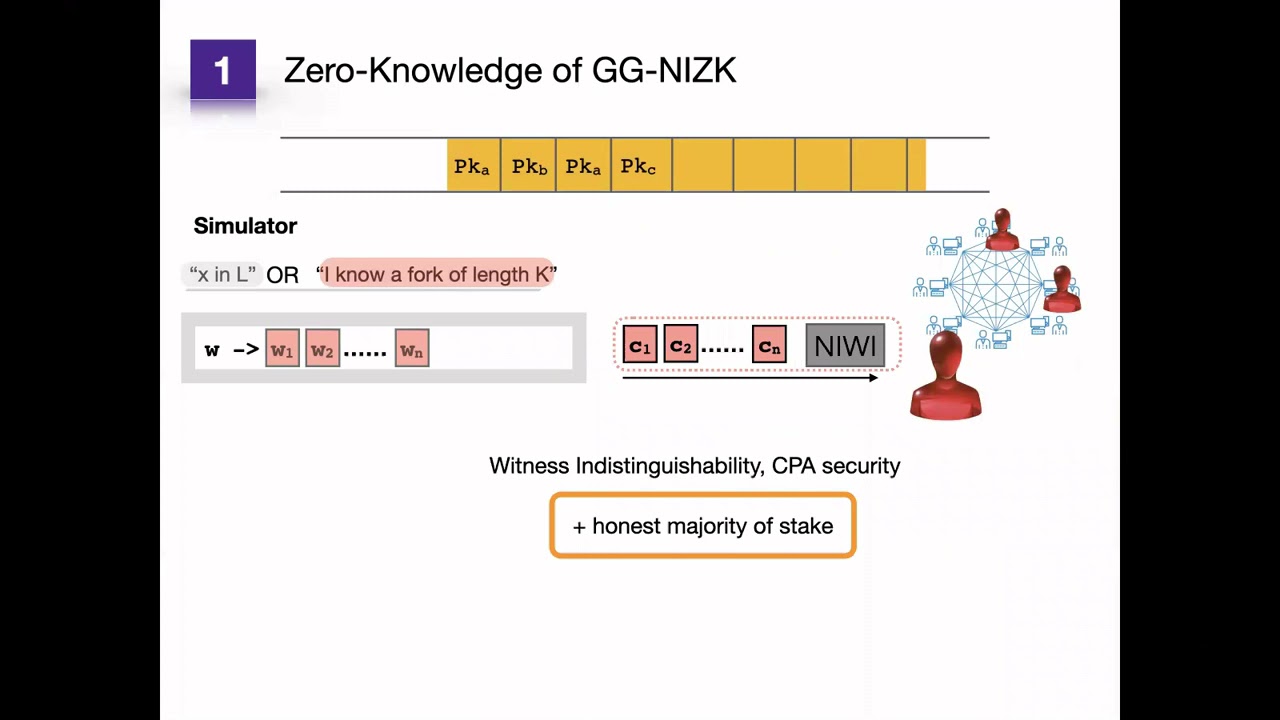Welcome to the resource topic for 2020/1435
Title:
Publicly Verifiable Zero Knowledge from (Collapsing) Blockchains
Authors: Alessandra Scafuro, Luisa Siniscalchi, Ivan Visconti
Abstract:Publicly Verifiable Zero-Knowledge proofs are known to exist only from setup assumptions such as a trusted Common Reference String (CRS) or a Random Oracle. Unfortunately, the former requires a trusted party while the latter does not exist. Blockchains are distributed systems that already exist and provide certain security properties (under some honest majority assumption), hence, a natural recent research direction has been to use a blockchain as an alternative setup assumption. In TCC 2017 Goyal and Goyal proposed a construction of a publicly verifiable zero-knowledge (pvZK) proof system for some proof-of-stake blockchains. The zero-knowledge property of their construction however relies on some additional and not fully specified assumptions about the current and future behavior of honest blockchain players. In this paper, we provide several contributions. First, we show that when using a blockchain to design a provably secure protocol, it is dangerous to rely on demanding additional requirements on behaviors of the blockchain players. We do so by showing an “attack of the clones” whereby a malicious verifier can use a smart contract to slyly (not through bribing) clone capabilities of honest stakeholders and use those to invalidate the zero-knowledge property of the proof system by Goyal and Goyal. Second, we propose a new publicly verifiable zero-knowledge proof system that relies on non-interactive commitments and on an assumption on the min-entropy of some blocks appearing on the blockchain. Third, motivated by the fact that blockchains are a recent innovation and their resilience in the long run is still controversial, we introduce the concept of collapsing blockchain, and we prove that the zero-knowledge property of our scheme holds even if the blockchain eventually becomes insecure and all blockchain players eventually become dishonest.
ePrint: https://eprint.iacr.org/2020/1435
Talk: https://www.youtube.com/watch?v=6NZeJ8W_ZvY
Slides: https://iacr.org/submit/files/slides/2021/pkc/pkc2021/195/slides.pdf
See all topics related to this paper.
Feel free to post resources that are related to this paper below.
Example resources include: implementations, explanation materials, talks, slides, links to previous discussions on other websites.
For more information, see the rules for Resource Topics .
